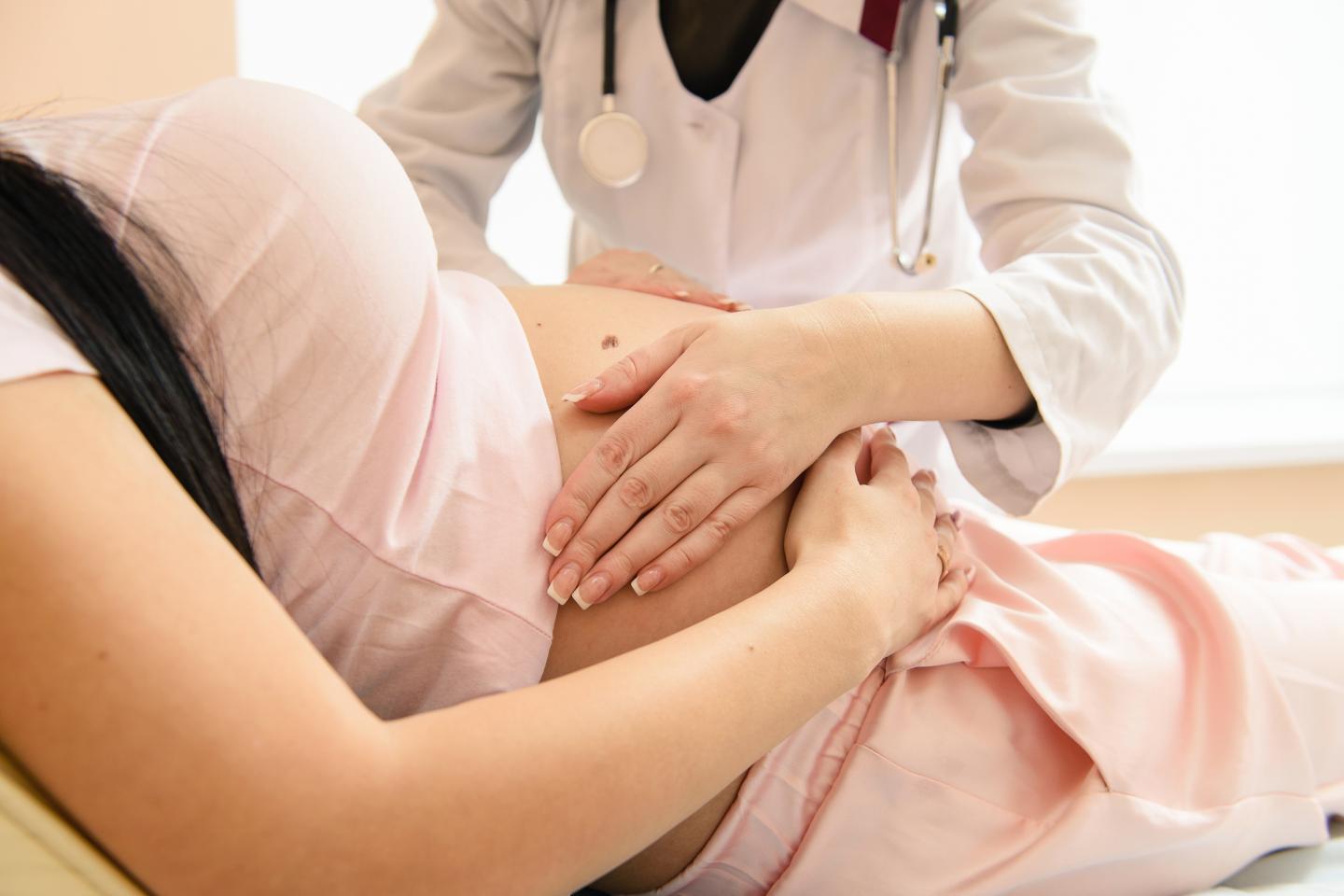
Credit: Intermountain Healthcare
Any time a pregnant woman presents in heart failure there are risks to both mother and baby. What does it take to protect the mother and her growing baby for the best possible outcome?
According to clinicians at Intermountain Healthcare in Salt Lake City, the key to survival is a multidisciplinary team-based approach, involving cardiac and maternal/fetal/newborn specialists — who normally don’t work together — to team up to successfully save mom and baby.
In a case study presented at the American College of Cardiology Scientific Sessions in New Orleans on March 16, clinicians from the Intermountain Healthcare Heart Institute demonstrated how multiple medical teams across several different disciplines saved the life of both the mother and child after she was transferred from a smaller, local hospital.
“This case represents an enormous team effort and shows what it takes to see a critically-ill patient through the course of a unique and very challenging illness,” said Kismet Rasmusson, DNP, FNP, of the Intermountain Healthcare Heart Institute.
The 36-year-old patient was 22 weeks pregnant when she came to an Intermountain hospital with shortness of breath, but no prior history of heart disease.
When doctors realized her heart was failing — either from idiopathic cardiomyopathy with an unknown cause, or pregnancy associated cardiomyopathy — she was transferred to the Intermountain Medical Center Heart Institute.
Cardiomyopathy leads to heart failure – a disease of the heart muscle that makes it harder for the heart to pump blood to the rest of the body. About 6.2 million Americans have some type of heart failure, including women and men. According to a recent study in JAMA, maternal deaths in the US are high, with 10% of them related to cardiomyopathy, yet 60% of these are preventable with optimal treatments and coordinating care. That’s exactly what this team had to offer this patient.
For seven weeks, the mother’s care was managed by multiple teams, including heart failure cardiologists with the OB team. To develop a full plan of care, the rest of the team was assembled that included critical care physicians, interventional cardiologists, cardiothoracic surgeons, specialized nurses, cath lab and surgical staff, the staffs of Intermountain Medical Center’s Thoracic ICU and Newborn ICU, pharmacists, advanced practice clinicians, and cardiovascular nurses. Social workers also supported both the patient and her spouse.
“We had two goals — first to let the baby mature enough so the baby would have a better outcome, and second to keep the mom as stable as we could with her terribly weak heart muscle,” said Rasmusson.
The baby was delivered at 29 weeks – about 11 weeks early. The team knew the delivery was risky and required advanced planning ahead of time. They held two meetings before the delivery date to discuss the sequence of events and roles of all team members, which included mechanically-supporting the mother’s heart during a cesarean-section surgery in the cardiac catheterization lab.
The sequence of the complicated delivery included intubation, pulmonary artery catheter insertion, temporary mechanical support insertion, cesarean-section delivery, sending the baby to the newborn intensive care unit with her father, and post-delivery intensive care monitoring.
After delivery, the mother’s heart remained very weak, so she had a left ventricle assist device (LVAD) implanted, which provided more durable mechanical support for her heart and served as a bridge to a heart transplant, which she received eight months after delivery.
The baby is now nearly five years old, and both the baby and mother are doing well, Rasmusson said.
“The patient in this unique case had the best possible outcome we all hoped for,” she added. “Only through the experts within our different teams, having the depth of their skill and experience, and our commitment to delivering the best care could this be possible for women as in this case and for others like her.”
###
Media Contact
Jess C. Gomez
[email protected]




